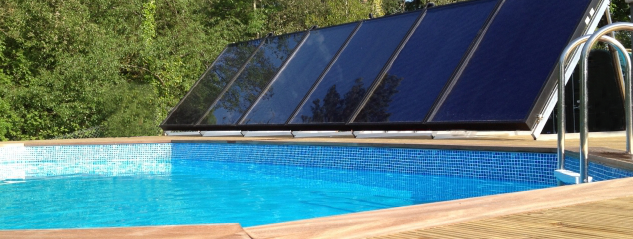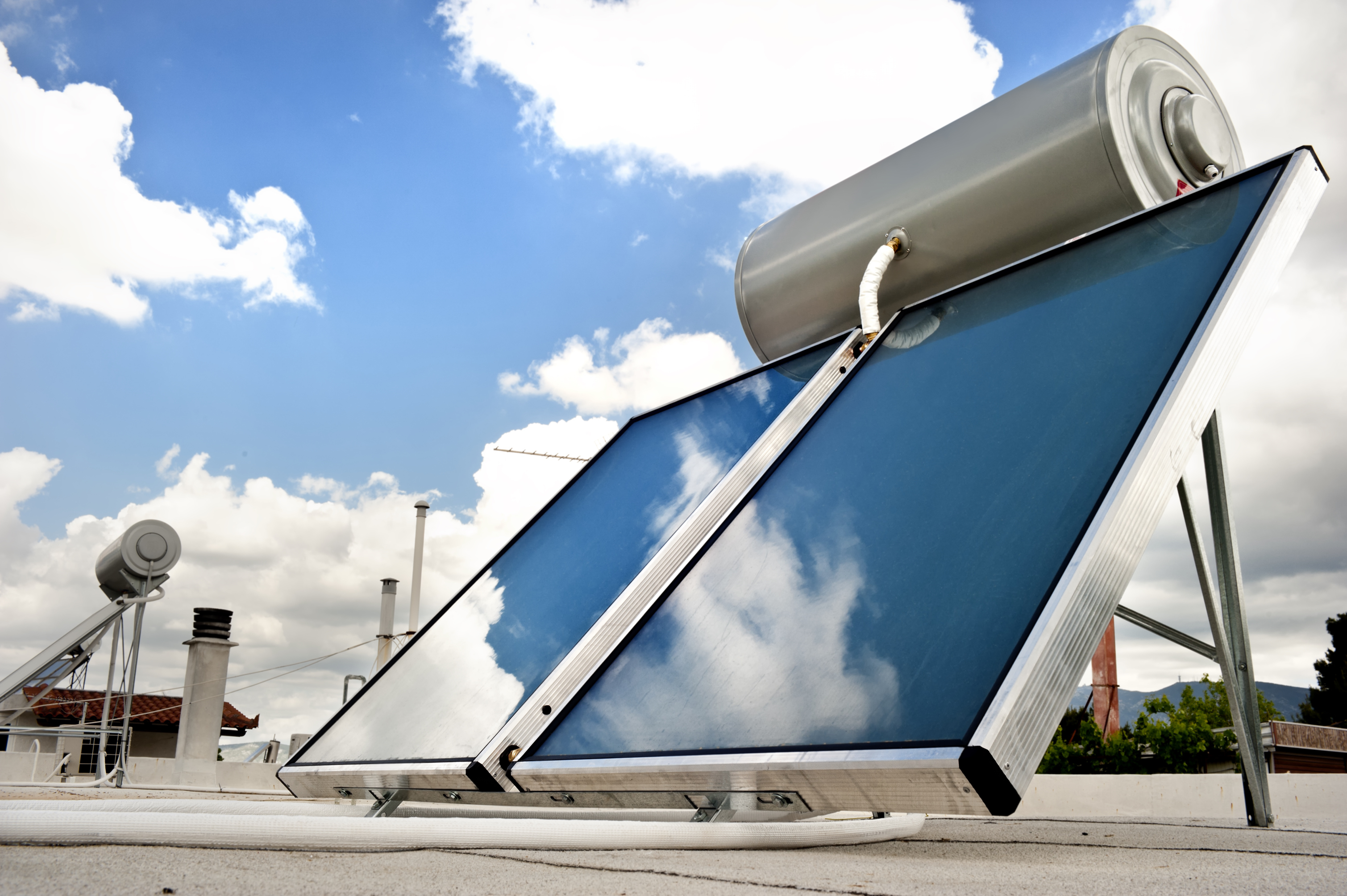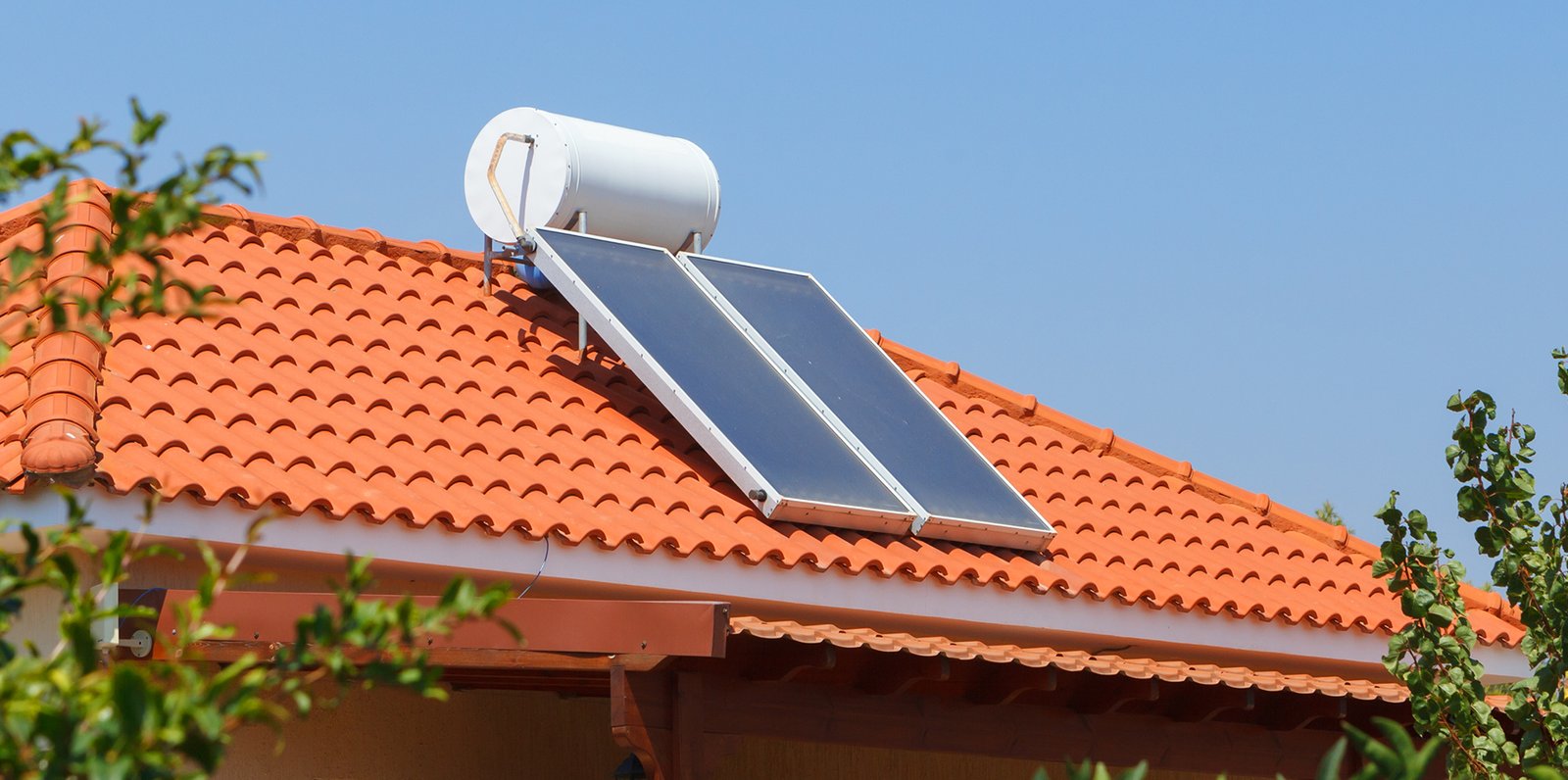Solar Powered Ventilation Fans
Ventilation fans of any type are a good idea since they help reduce cooling costs by exhausting hot air from attic spaces and other areas. Traditionally, these exhaust fans are wired into household electrical current, which somewhat defeats the energy-saving purpose. Now, however, you can buy self-contained roof vent fans that feature a small panel of photo-electric cells that operate the fan motor with no need for household electrical current at all. Small roof-mounted units are perfect for keeping a garage, shed, doghouse, or chicken coop cool in the summer. There are also free-standing solar-powered fans you can use on a patio, patio, or kids' play area.

Solar Heating for Your Swimming Pool
Swimming pools are one of the greatest joys of summer for children and parents alike. Everyone is excited the first day the pool is opened—except when the pool is just too cold to jump into it. To fix that problem, you can add a solar blanket that will warm the water. The basic floating blanket is a passive heating device that works simply by absorbing the sun's heat and transmitting it to the water.

Solar Water Heater
There are two types of solar systems that can be used to replace traditional water heaters powered by gas or electricity. Active solar hot water systems make use of mechanical circulating pumps that circulate water or another fluid from rooftop heat collection panels down into a storage tank. Passive hot water systems have no mechanical pump components, operating by the simple physics of heat naturally rising.

Solar House Heating
The energy of the sun can also be used to heat an entire home in one of two ways. These are systems for the homeowner truly serious about renewable energy, as they involve a substantial investment.

The amount of sunlight that strikes the earth's surface in an hour and a half is enough to handle the entire world's energy consumption for a full year. Solar technologies convert sunlight into electrical energy either through photovoltaic (PV) panels or through mirrors that concentrate solar radiation. This energy can be used to generate electricity or be stored in batteries or thermal storage. Below, you can find resources and information on the basics of solar radiation, photovoltaic and concentrating solar-thermal power technologies, electrical grid systems integration, and the non-hardware aspects (soft costs) of solar energy. You can also learn more about how to go solar and the solar energy industry. In addition, you can dive deeper into solar energy and learn about how the U.S. Department of Energy Solar Energy Technologies Office is driving innovative research and development in these areas.







